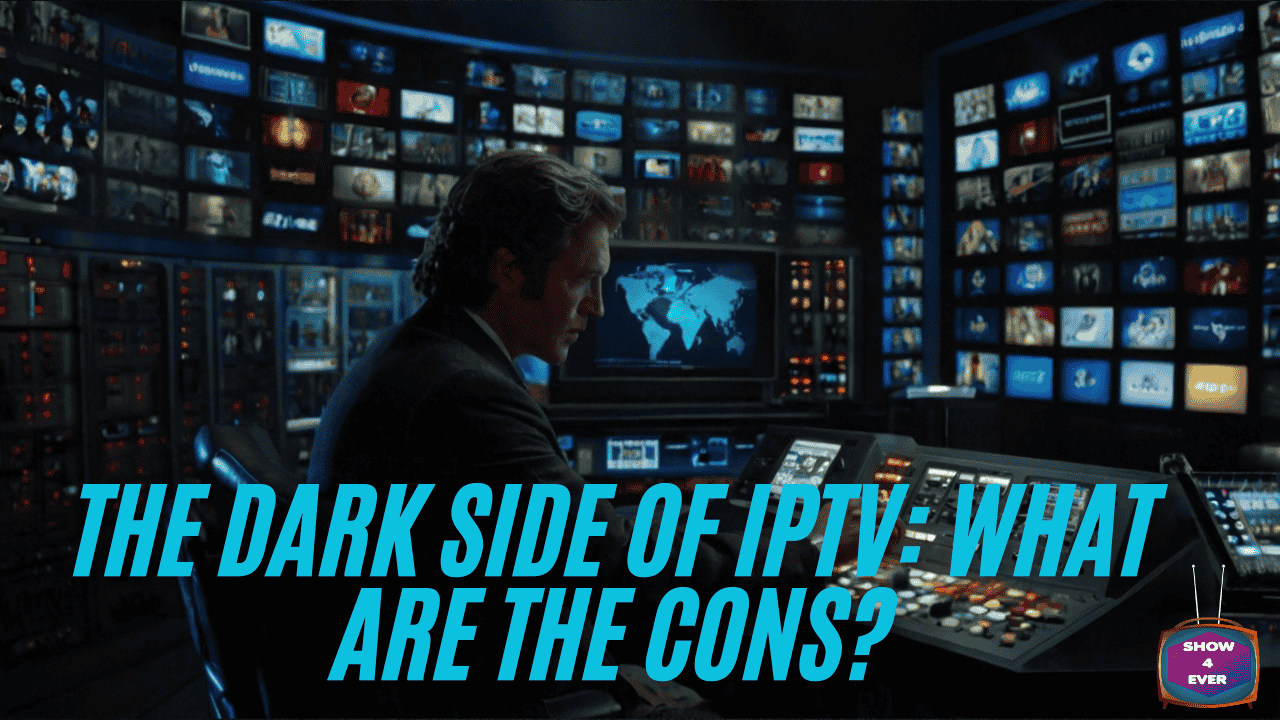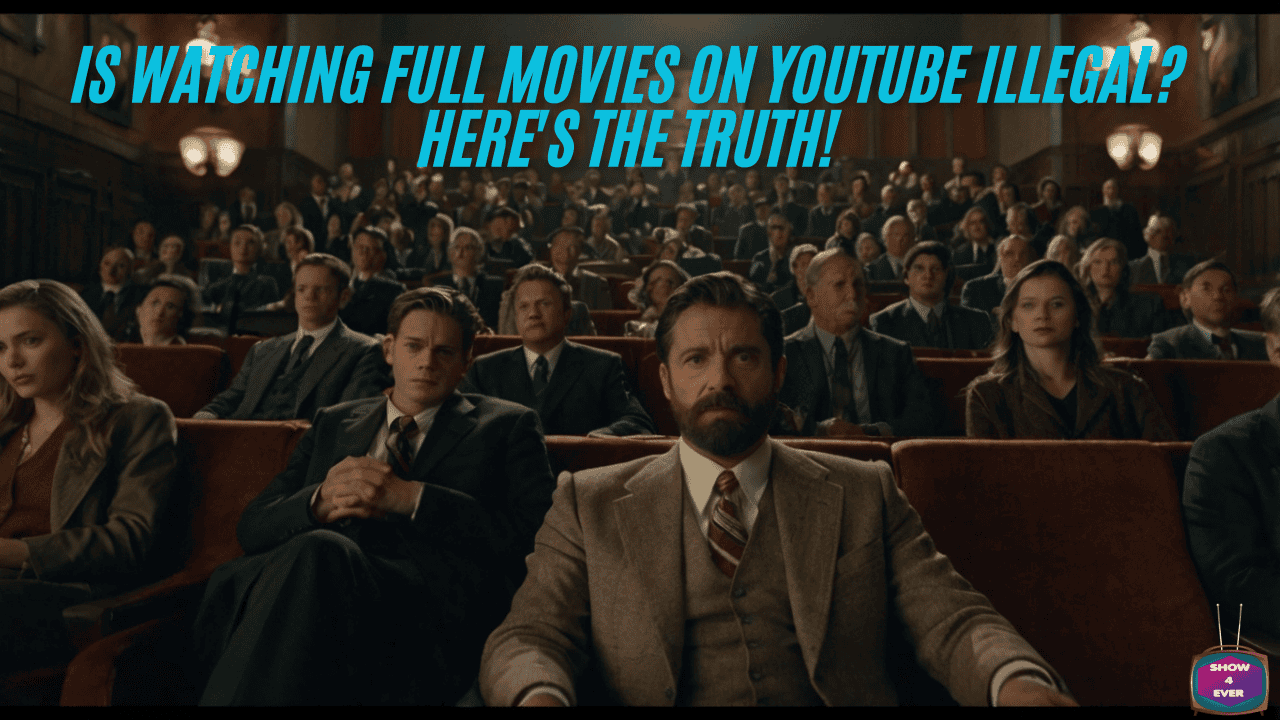Unveiling the Dark Side: What Are the Cons of Using IPTV?
Introduction
Internet Protocol Television, or IPTV, continues to become popular as a choice to traditional cable and satellite services. IPTV seems so much like the future of television it promises on-demand content, plentiful channels, and you can watch wherever there is an Internet connection. But let’s discuss the many hidden cons of the main site behind its shiny facade that users often overlook. IPTV hasn’t always been what it appeared, with things from service reliability to legal risks making it not always the perfect solution. Unveiling the Dark Side of IPTV let’s see what powers and pitfalls users may face.
The Rise of IPTV: Why Isn’t Everything So Perfect?
There is no doubt, the initial attraction of IPTV is compelling. Why wouldn’t you want to have access to TV shows, sports, and movies at the tip of your fingers? And there lies behind this growing trend several less glamorous factors. One of the main issues that IPTV provides services is that many of them are run in legal grey areas, in particular when the channels do not have the right to broadcast.
Furthermore, IPTV services suffer performance problems. The quality can be anything, highly depending on the provider, internet connection, and server traffic. So what begins as a fresh, new way to consume content becomes not only a pain for users that have buffering, outages, or unexpected limits to what they can do.
However, the convenience of IPTV generally comes with the loss of the user’s security and privacy. Most of the services do not provide the same level of protection as that from the traditional providers leaving users exposed to possible cyber risks. The dark side of IPTV isn’t always clear until you get further.
Unreliable Service: Top five frustrating cons of using IPTV daily.

IPTV is notorious for not being reliable. A stable high-speed internet connection also depends on the quality of service. Sadly, even a tiny hiccup in your connection can greatly disrupt it. The volatility of IPTV can have couch potatoes losing their minds, peppering the web with comments about buffering during their favorite show, or channels vanishing from the lineup.
Beyond that availability of content differs from IPTV provider to IPTV provider. Sometimes channels work perfectly today, and tomorrow, they’re gone without explanation. Since many providers don’t operate in traditional regulatory arenas, there is little recourse if something goes wrong. Users often switch providers back and forth or find themselves troubleshooting issues that wouldn’t exist with cable or satellite services.
Customer service also involves unpredictability. Most IPTV providers provide very little to no customer support. You’re left on your own to try and figure out how to solve these problems when things go wrong. From a user’s perspective, when something is lacking in an IPTV service that is then not available as promised, this could more easily displace the benefits of IPTV by reducing it, more than it might seem at face value.
Legal Grey Zones: IPTV: Why It Can Get You in Hot Water

The one thing that most people get scared of with IPTV is its legal status. IPTV services come in different varieties. While some IPTV services conduct themselves legally using the proper licensing for their content, there are others who don’t. The situation can create massive legal conflicts for the providers and users alike.
IPTV services that stream copyrighted material without consent are many, and they’re illegal, in many countries. On the user side, there can be penalties as well while the service provider is mainly to blame. So if you decide to use such services in some regions, you may have a few fines or other legal consequences. Cheap and easily available IPTV could be a device you don’t want if it might also bring you trouble with the law.
Moreover, the IPTV legal landscape keeps evolving. IPTV has various and dynamic laws and regulations imposed by different countries around the world and users are in a risky position. Something you do today might be legal tomorrow, something that will be illegal tomorrow, or something that might be illegal one day. Consumers desire to know where the risks of using IPTV services lie, most especially if such services are ambiguous regarding the status of their operation.
Quality and Performance Issues: What are the Technical Drawbacks of IPTV?

IPTV brings aside other legal risks, but at the same time has various technical problems that can affect the user’s experience. To stream video content over the internet you’ll need a ton of bandwidth, which means if your internet connection isn’t up for the task you’re likely going to run into problems like buffering lag and poor-quality video.
The quality of IPTV services also depends on the network congestion. IPTV, unlike traditional cable or satellite services, doesn’t depend on installing a relatively stable signal, instead completely depending on internet infrastructure. The quality of your stream can plummet if there’s a lot of traffic on your network or the provider’s server.
In addition, a lot of IPTV services don’t provide such things that they claim to have, well HD or 4K content. Specifically pirated or illegitimate IPTV providers who may compress video to cut down bandwidth usage. In certain instances, you also won’t enjoy audio and video syncing — something that lessens the quality of your viewing experience.
Security Risks: IPTV’s darkest side that no one talks about
One of the most overlooked cons of IPTV has to be it being a potential security risk. The problem with all this is that using an IPTV service, especially one you’re not aware of or that isn’t well-regulated, can put your data at risk of being hacked. Most IPTV services rely on you to install third and fourth-party apps or software, that sometimes contain malware and viruses.
In addition, IPTV often operates in the legal grey zones so many of these services don’t follow strict data protection regulations. If you’re using an unsecured or illegitimate service, your personal and payment information is at risk.
A second big security issue is privacy. Your data should be encrypted and otherwise protected in legitimate streaming services. That’s where many IPTV services, especially illegal ones, fail to protect you. After, your viewing habits, personal details, and device security are at the risk of breaches.
Conclusion
IPTV has powerful features that are appealing — vast content and flexible viewing options — but the cons are strong and go unnoticed. With unreliable service, performance problems, legal risk, and security vulnerabilities, IPTV isn’t always exactly what it seems. If you’re a potential user considering the switch to an IPTV service, it’s important to understand these risks so you weigh them carefully before you do.
Here’s the basic structure as well as a breakdown of what each section should cover. This gives you this and you can expand each of these sections, taking them in the way your research has gone or you might like me to focus on some things that most capture your attention.
Share this content:















1 comment